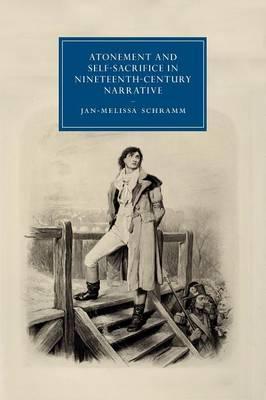Overview
Jan-Melissa Schramm explores the conflicted attitude of the Victorian novel to sacrifice, and the act of substitution on which it depends. The Christian idea of redemption celebrated the suffering of the innocent: to embrace a life of metaphorical self-sacrifice was to follow in the footsteps of Christ's literal Passion. Moreover, the ethical agenda of fiction relied on the expansion of sympathy which imaginative substitution was seen to encourage. But Victorian criminal law sought to calibrate punishment and culpability as it repudiated archaic models of sacrifice that scapegoated the innocent. The tension between these models is registered creatively in the fiction of novelists such as Dickens, Gaskell and Eliot, at a time when acts of Chartist protest, national sacrifices made during the Crimean War, and the extension of the franchise combined to call into question what it means for one man to 'stand for', and perhaps even 'die for', another.
Full Product Details
Author: Jan-Melissa Schramm (University of Cambridge)
Publisher: Cambridge University Press
Imprint: Cambridge University Press
Volume: 80
Dimensions:
Width: 15.10cm
, Height: 1.80cm
, Length: 22.80cm
Weight: 0.444kg
ISBN: 9781107507609
ISBN 10: 110750760
Pages: 310
Publication Date: 05 March 2015
Audience:
Professional and scholarly
,
Professional and scholarly
,
Professional & Vocational
,
Professional & Vocational
Format: Paperback
Publisher's Status: Active
Availability: Manufactured on demand

We will order this item for you from a manufactured on demand supplier.
Reviews
'Schramm's work is a significant work for Victorian scholars and all who wish to understand more clearly the political, legal and theological ferment of the nineteenth century and how that is reflected in attitudes to sacrifice and substitution in the Victorian novel.' Peter Stiles, The Glass Having produced a book that is extraordinarily learned, nuanced, and comprehensive, Schramm clearly has even more to say on atonement, self-sacrifice, and the ethical work of narrative. --Review 19
'Schramm's work is a significant work for Victorian scholars and all who wish to understand more clearly the political, legal and theological ferment of the nineteenth century and how that is reflected in attitudes to sacrifice and substitution in the Victorian novel.' Peter Stiles, The Glass
Author Information
Jan-Melissa Schramm is a Fellow in English at Trinity Hall College, Cambridge and an affiliated Lecturer in the Faculty of English at the University of Cambridge, where she teaches Victorian literature. She worked as a lawyer before undertaking doctoral research in English. She is the author of Testimony and Advocacy in Victorian Law, Literature, and Theology (Cambridge, 2000), as well as a number of articles and book chapters on representations of the law in the works of Dickens and Eliot, Victorian satire and first-person narration.




